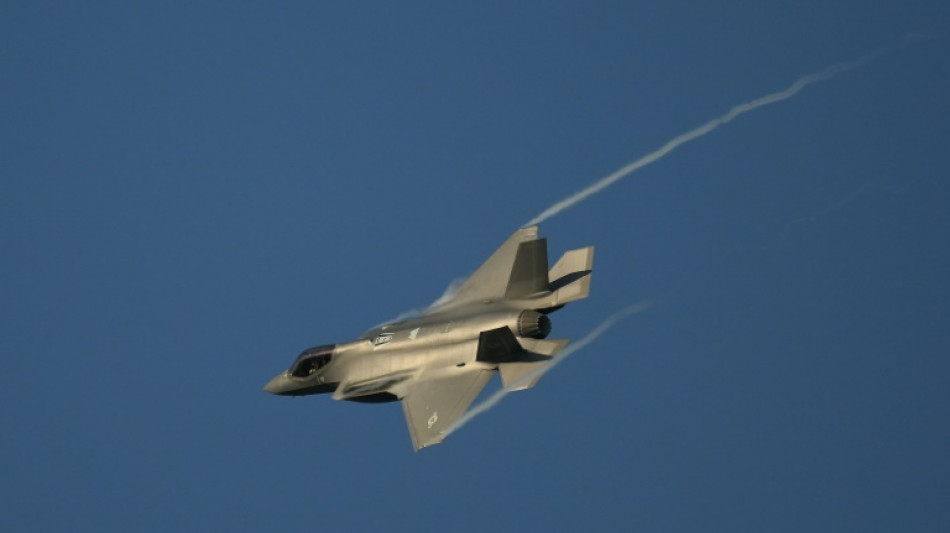
-
 Rybakina advances to WTA Canadian Open semis
Rybakina advances to WTA Canadian Open semis
-
Brazilian judge places ex-president Bolsonaro under house arrest
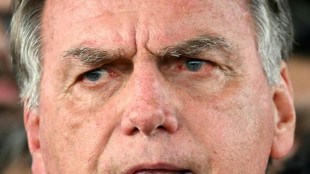
-
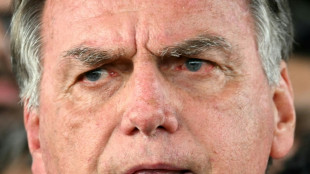 Brazil judge places ex-president Bolsonaro under house arrest
Brazil judge places ex-president Bolsonaro under house arrest
-
NGOs caught between juntas and jihadists in turbulent Sahel

-
 NBA Spurs agree to four-year extension with Fox: reports
NBA Spurs agree to four-year extension with Fox: reports
-
Stocks mostly rebound on US interest rate cut bets
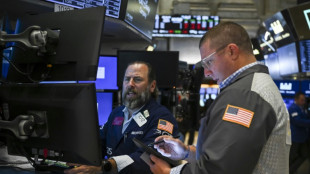
-
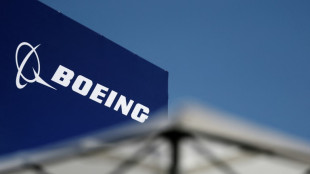 Boeing defense workers launch strike over contract dispute
Boeing defense workers launch strike over contract dispute
-
Grand Canyon fire rages, one month on
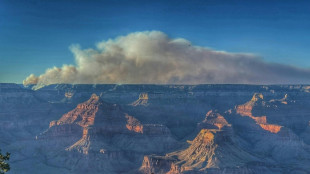
-
 Djokovic withdraws from ATP Cincinnati Masters
Djokovic withdraws from ATP Cincinnati Masters
-
Brazil's Paixao promises 'big things' at Marseille unveiling

-
 Shubman Gill: India's elegant captain
Shubman Gill: India's elegant captain
-
Trump says to name new labor statistics chief this week
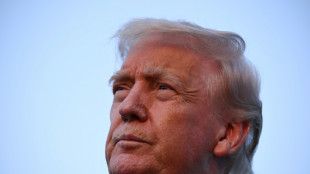
-
 England v India: Three talking points
England v India: Three talking points
-
Exceptional Nordic heatwave stumps tourists seeking shade

-
 'Musical cocoon': Polish mountain town hosts Chopin fest
'Musical cocoon': Polish mountain town hosts Chopin fest
-
A 'Thinker' drowns in plastic garbage as UN treaty talks open

-
 India's Siraj 'woke up believing' ahead of Test heroics
India's Siraj 'woke up believing' ahead of Test heroics
-
Israeli PM says to brief army on Gaza war plan

-
 Frustrated Stokes refuses to blame Brook for England collapse
Frustrated Stokes refuses to blame Brook for England collapse
-
Moscow awaits 'important' Trump envoy visit before sanctions deadline
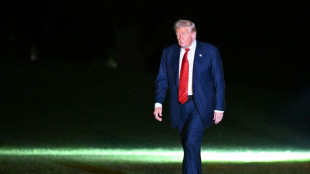
-
 Schick extends Bayer Leverkusen contract until 2030
Schick extends Bayer Leverkusen contract until 2030
-
Tesla approves $29 bn in shares to Musk as court case rumbles on
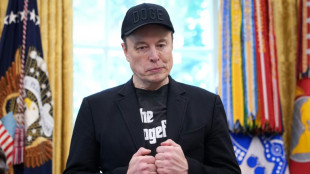
-
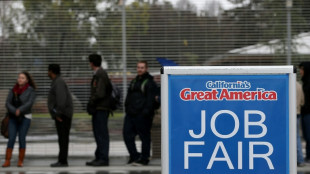 Stocks rebound on US rate cut bets
Stocks rebound on US rate cut bets
-
Swiss eye 'more attractive' offer for Trump after tariff shock
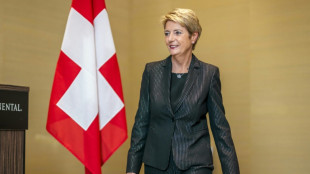
-
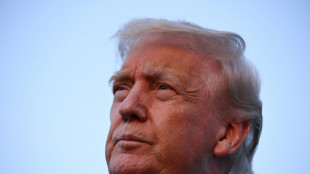 Trump says will name new economics data official this week
Trump says will name new economics data official this week
-
Three things we learned from the Hungarian Grand Prix

-
 Lions hooker Sheehan banned over Lynagh incident
Lions hooker Sheehan banned over Lynagh incident
-
Jordan sees tourism slump over Gaza war

-
 China's Baidu to deploy robotaxis on rideshare app Lyft
China's Baidu to deploy robotaxis on rideshare app Lyft
-
Israel wants world attention on hostages held in Gaza

-
 Pacific algae invade Algeria beaches, pushing humans and fish away
Pacific algae invade Algeria beaches, pushing humans and fish away
-
Siraj stars as India beat England by six runs in fifth-Test thriller

-
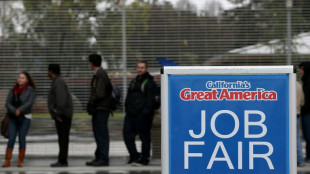 Stocks mostly rise as traders boost US rate cut bets
Stocks mostly rise as traders boost US rate cut bets
-
S.Africa eyes new markets after US tariffs: president
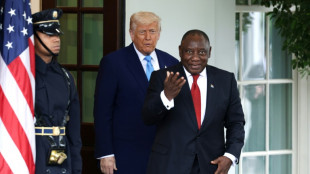
-
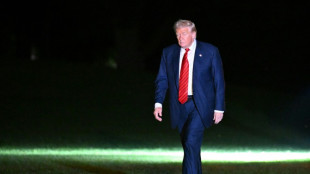 Trump envoy's visit will be 'important', Moscow says
Trump envoy's visit will be 'important', Moscow says
-
BP makes largest oil, gas discovery in 25 years off Brazil

-
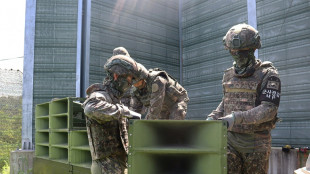 South Korea removing loudspeakers on border with North
South Korea removing loudspeakers on border with North
-
Italy fines fast-fashion giant Shein for 'green' claims
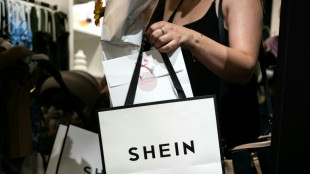
-
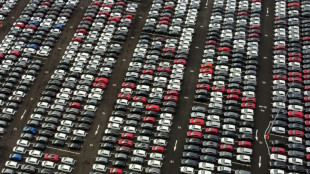 Shares in UK banks jump after car loan court ruling
Shares in UK banks jump after car loan court ruling
-
Beijing issues new storm warning after deadly floods
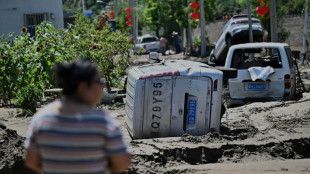
-
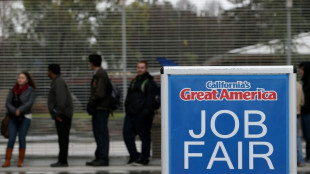 Most markets rise as traders US data boosts rate cut bets
Most markets rise as traders US data boosts rate cut bets
-
17 heat records broken in Japan

-
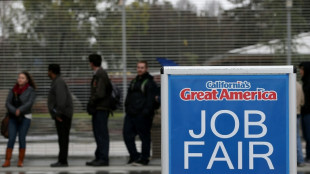 Most markets rise as traders weigh tariffs, US jobs
Most markets rise as traders weigh tariffs, US jobs
-
Tycoon who brought F1 to Singapore pleads guilty in graft case
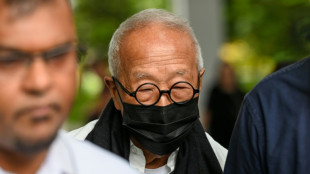
-
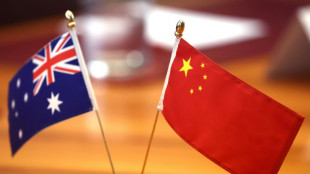 Australian police charge Chinese national with 'foreign interference'
Australian police charge Chinese national with 'foreign interference'
-
Torrential rain in Taiwan kills four over past week
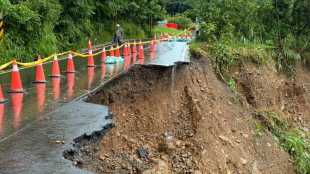
-
 Rwanda bees being wiped out by pesticides
Rwanda bees being wiped out by pesticides
-
Tourism boom sparks backlash in historic heart of Athens

-
 Doctors fight vaccine mistrust as Romania hit by measles outbreak
Doctors fight vaccine mistrust as Romania hit by measles outbreak
-
Fritz fights through to reach ATP Toronto Masters quarters

| RBGPF | 0.08% | 75 | $ | |
| NGG | 1.14% | 72.65 | $ | |
| SCU | 0% | 12.72 | $ | |
| RYCEF | 2.07% | 14.5 | $ | |
| BCC | -0.77% | 82.71 | $ | |
| RELX | 0.73% | 51.97 | $ | |
| CMSD | 1.18% | 23.63 | $ | |
| BCE | -1.12% | 23.31 | $ | |
| RIO | 0.58% | 60 | $ | |
| CMSC | 0.87% | 23.07 | $ | |
| SCS | 38.6% | 16.58 | $ | |
| JRI | 0.76% | 13.2 | $ | |
| AZN | 0.86% | 74.59 | $ | |
| GSK | 0.32% | 37.68 | $ | |
| VOD | 0.72% | 11.04 | $ | |
| BTI | 2.16% | 55.55 | $ | |
| BP | 2.28% | 32.49 | $ |

Rare earths: China's trump card in trade war with US
China is counting on one crucial advantage as it seeks to grind out a deal to ease its high-stakes trade war with the United States -- dominance in rare earths.
Used in electric vehicles, hard drives, wind turbines and missiles, rare earth elements are essential to the modern economy and national defence.
AFP takes a look at how rare earths have become a key sticking point in talks between the US and China.
- Mining boom -
"The Middle East has oil. China has rare earths," Deng Xiaoping, the late Chinese leader whose pro-market reforms set the country on its path to becoming an economic powerhouse, said in 1992.
Since then, Beijing's heavy investment in state-owned mining firms and lax environmental regulations compared to other industry players have turned China into the world's top supplier.
The country now accounts for 92 percent of global refined output, according to the International Energy Agency.
But the flow of rare earths from China to manufacturers around the world has slowed after Beijing in early April began requiring domestic exporters to apply for a licence -- widely seen as a response to US tariffs.
Under the new requirements -- which industry groups have said are complex and slow-moving -- seven key elements and related magnets require Beijing's approval to be shipped to foreign buyers.
- Deep impact -
Ensuring access to the vital elements has become a top priority for US officials in talks with Chinese counterparts, with the two sides meeting this week in London.
"The rare earth issue has clearly... overpowered the other parts of the trade negotiations because of stoppages at plants in the United States," said Paul Triolo, a technology expert at the Asia Society Policy Institute's Center for China Analysis, in an online seminar on Monday.
That disruption, which forced US car giant Ford to temporarily halt production of its Explorer SUV, "really got the attention of the White House", said Triolo.
Officials from the two countries said Tuesday that they had agreed on a "framework" for moving forward on trade -- with US Commerce Secretary Howard Lutnick expressing optimism that concerns over access to rare earths "will be resolved" eventually.
- Rare earth advantage -
The slowing of licence issuance has raised fears that more automakers will be forced to halt production while they await shipments.
China's commerce ministry said over the weekend that as a "responsible major country" it had approved a certain number of export applications, adding that it was willing to strengthen related dialogue with "relevant countries".
But that bottleneck has highlighted Washington's reliance on Chinese rare earths for producing its defence equipment even as trade and geopolitical tensions deepen.
An F-35 fighter jet contains over 900 pounds (more than 400 kilograms) of rare earth elements, noted a recent analysis by Gracelin Baskaran and Meredith Schwartz of the Critical Minerals Security Program at the Center for Strategic and International Studies.
"Developing mining and processing capabilities requires a long-term effort, meaning the United States will be on the back foot for the foreseeable future," they wrote.
- Playing catch up -
The recent export control measures are not the first time China has leveraged its dominance of rare earths supply chains.
After a 2010 maritime collision between a Chinese trawler and Japanese coast guard boats in disputed waters, Beijing briefly halted shipments of its rare earths to Tokyo.
The episode spurred Japan to invest in alternative sources and improve stockpiling of the vital elements -- with limited success.
That is "a good illustration of the difficulty of actually reducing dependence on China", said Triolo, noting that in the 15 years since the incident, Japan has achieved only "marginal gains".
The Pentagon is trying to catch up, with its "mine-to-magnet" strategy aiming to ensure an all-domestic supply chain for the key components by 2027.
The challenge facing Washington to compete with Beijing in rare earths is compounded by sheer luck: China sits on the world's largest reserves.
"Mineable concentrations are less common than for most other mineral commodities, making extraction more costly," wrote Rico Luman and Ewa Manthey of ING in an analysis published Tuesday.
"It is this complex and costly extraction and processing that make rare earths strategically significant," they wrote.
"This gives China a strong negotiating position."
M.AlAhmad--SF-PST
